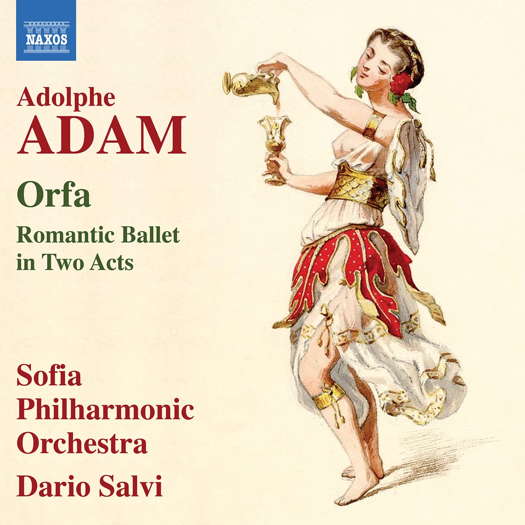- Pierre-Claude Foucquet
- Julian Dawes
- Jenő Huszka
- Suzuki
- Bacewicz
- samba
- Ilja Hurník
- Ian Stephens: Clarinet Quintet
 DISCUSSION: John Dante Prevedini leads a discussion about Composers, individuals or collective?, including contributions from David Arditti, Halida Dinova, Robert McCarney and Jane Stanley.
DISCUSSION: John Dante Prevedini leads a discussion about Composers, individuals or collective?, including contributions from David Arditti, Halida Dinova, Robert McCarney and Jane Stanley.
 DISCUSSION: What is a work? John Dante Prevedini leads a discussion about The performing artist as co-creator, including contributions from Halida Dinova, Yekaterina Lebedeva, Béla Hartmann, David Arditti and Stephen Francis Vasta.
DISCUSSION: What is a work? John Dante Prevedini leads a discussion about The performing artist as co-creator, including contributions from Halida Dinova, Yekaterina Lebedeva, Béla Hartmann, David Arditti and Stephen Francis Vasta.

A More Advanced Creed
Adolphe Adam's ballet 'Orfa', passionately recommended by GERALD FENECH
'... really arresting playing full of joy and rhythmic beauty.'
Adolphe-Charles Adam (1803-1856), famous for the ballet Giselle (1841), wrote fourteen such works. These have been virtually ignored by posterity, but thanks to Richard Bonynge they are slowly coming to the attention of music lovers in general.
Orfa is the thirteenth of Adam's compositions in this genre, and shows the fruit of his long years of working in the theatre as an opera and ballet composer. After its premiere at the Paris Opera on 29 December 1852, the work enjoyed fifty-one performances in Paris until 1860, but very soon after this successful spell, Orfa found itself by the wayside.
This splendid recording should put the record straight and shows what we have been missing for so long. The plot describes the conflict between older gods being superceded by the new ones in a generational change that harks back to antiquity, the abduction of a loved one by a powerful magician and the quest for the hero to find and liberate the beloved. There are echoes here of Ludmilla, Brunnhilde and Odette among others.
Listen — Adolphe Adam: Introduction - Le Rendez-vous (Orfa Act I)
(8.574478 track 1, 0:01-0:55) ℗ 2023 Naxos Rights (Europe) Ltd :
The plot, by Henri Trianon and François-Hippolyte Leroy, is a strange mixture of elements from Nordic mythology and gives scope for romantic adventure with mythological overtones and the opportunity for stage spectacle, especially the evocation of Iceland's landscape. The intriguing scenario also shares analogies with Hesiod's Theogony and Wagner's Ring cycle.
In the last phase of his life, Adam displayed a new and growing dynamism evinced in the increased breadth and depth of his orchestral imagination and its new dramatic dimensions. One sees this in Orfa where Adam experiments with the orchestra as never before. He uses the largest instrumental canvasses essayed up till then and displays real skill in orchestration and dramatic aptitude. The score of Orfa has a great sense of propulsion, imagination and tonal colour, and the melodies are simply gorgeous. There is terrific brass playing in the last Act, especially where the cornets are used both methodically and harmonically. Indeed, the apotheosis attains a spine-tingling breadth and grandeur of effect.
Listen — Adolphe Adam: Apothéose (Orfa Act II)
(8.574478 track 8, 12:07-13:02) ℗ 2023 Naxos Rights (Europe) Ltd :
Act I is set in Iceland with Mount Hecla in the distance. The cult of Loki, the God of Fire, is being suspended by the more advanced creed of Odin. Young people gather to celebrate their Nordic identity and love. Orfa and her fiancé Lodbrog come to celebrate their wedding at this cultic and welcoming of fire. Seeing an old man being ridiculed by the crowd, Lodbrog invites him to sit by the fire and join in their celebration. A harp is heard as the old man puts his hand over Lodbrog's head and vanishes. Loki's priests are about to perform the marriage ceremony when, suddenly, the statue of the god propels shafts of lightning into the air. This puts a stop to the ceremony, as Lodbrog shakes his fist angrily at the statue, which then begins to glow brightly. Orfa is irresistibly drawn to Loki, and is promptly swallowed into the earth with the statue amidst a burst of flames. Still, not all is lost as the old man reappears and gives Lodbrog a golden arrow which will enable him to rescue his Orfa.
Listen — Adolphe Adam: Après le divertissement (Orfa Act I)
(8.574478 track 5, 1:15-2:15) ℗ 2023 Naxos Rights (Europe) Ltd :
Act II unfolds in Loki's magnificent palace. He enters carrying Orfa, whom he lays on a couch encrusted with diamonds. At a sign from him she regains her senses and the Seven Pleasures and Vices are summoned to break down Orfa's resistance. As they dance their wiles, Lodbrog appears at the top of the stairway. He scatters the guards with the magic arrow, but Loki retaliates by imprisoning Orfa in a clump of golden reeds. The mysterious old man now reappears and invites Lodbrog to touch the reeds with his golden arrow. As he does so, Orfa is released. She then herself takes the arrow and, using its magic power, restores to natural shape many young girls who Loki had transformed into rocks and flowers. The old man now reveals himself as the god Odin, and the ballet ends with his blessing on the happy couple.
Dario Salvi's intense advocacy for the piece is all too evident in his vibrant conducting, and the Sofia Philharmonic respond with some really arresting playing full of joy and rhythmic beauty.
Listen — Adolphe Adam: Deuxième partie (Orfa Act II)
(8.574478 track 7, 7:09-8:06) ℗ 2023 Naxos Rights (Europe) Ltd :
A glorious discovery that should be given the attention it so richly deserves. Overgenerous playing time, superb sound and informative booklet notes complete a superb disc that should be snapped up without further delay. Passionately recommended.
Copyright © 14 June 2023
Gerald Fenech,
Gzira, Malta



